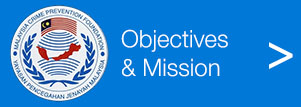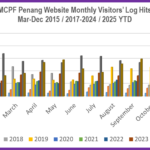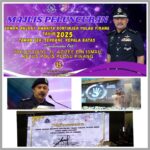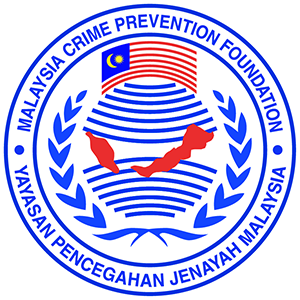
In recent years, Malaysia has seen a noticeable rise in individuals publicly adopting the prestigious title “Dr” before their names.
Traditionally, this honorific is reserved for those who have earned a doctorate (PhD or equivalent) from accredited and recognised institutions, whether in Malaysia or abroad. Medical professionals – including doctors, dentists and veterinarians – also rightfully use the title.
For honorary doctorates – awards given in recognition of distinguished service or contributions to society – the ethical convention is to present the designation in parentheses, as “(Dr)”, clearly distinguishing it from an earned academic credential.
However, a troubling pattern has emerged: individuals who obtain so-called “doctorates” from dubious or unaccredited institutions – often referred to as diploma mills – are increasingly adopting both the formal “Dr” and honorary “(Dr)” titles without restraint or scrutiny. These entities often operate online, charging fees for non-rigorous, unverified, or entirely fictitious programmes. Degrees from such sources carry no academic credibility, yet recipients freely use the title in professional, political and social contexts.
This practice is more than a harmless vanity project – it is a serious ethical violation. The misuse of the “Dr” title erodes the integrity of Malaysia’s academic and professional landscapes, diminishes genuine scholarly achievements, and undermines public trust in institutions and individuals alike.
The title “Dr” is not a decorative label. It symbolises years of disciplined research, critical inquiry and intellectual rigour. Falsely adopting this title constitutes a form of intellectual fraud and identity misappropriation. It confers unearned credibility, unjust influence and undeserved respect – particularly in societies like Malaysia, where academic and honorific titles carry immense social and political weight.
When unqualified individuals introduce themselves as “Dr”, they engage in a form of deception that distorts public perception. In critical sectors such as medicine, education, policymaking and public administration, misrepresented qualifications can have real-world consequences – from flawed decision-making and misguided public trust to potential endangerment of lives.
At present, Malaysia lacks a comprehensive legal framework to criminalise the fraudulent use of academic titles. The Malaysian Qualifications Agency (MQA) maintains lists of accredited institutions and recognised programmes, but enforcement is weak. There is little deterrence for those who purchase fake degrees or self-style themselves as “Dr” using dubious foreign credentials or honorary doctorates from unrecognised bodies.
By contrast, many democratic nations have implemented robust laws to regulate academic titles and penalise imposters.
In Germany, the misuse of academic titles is a criminal offence under Section 132a of the Criminal Code (Strafgesetzbuch), which forbids the unauthorised use of titles, degrees or academic designations. Offenders can face fines or imprisonment of up to one year. Germany also strictly governs the recognition of foreign degrees – only doctorates from universities listed by state authorities may be used with the “Dr” title.
In Australia, academic title misuse falls under consumer and professional misrepresentation laws, particularly under the Australian Consumer Law (Schedule 2 of the Competition and Consumer Act 2010). Misleading claims about qualifications can incur civil penalties of up to A$2.5 million for companies and A$500,000 for individuals. Some professional bodies may also impose disciplinary actions, including deregistration or professional bans.
In the United Kingdom, while the title “Dr” is not legally restricted, the Misrepresentation Act 1967 and the Fraud Act 2006 apply when individuals use false titles for financial gain, professional advancement or deception. Offenders found guilty of fraud by misrepresentation face up to 10 years’ imprisonment, depending on the context and severity.
Singapore’s Private Education Act mandates the registration and quality assurance of all private institutions. Misrepresenting qualifications can lead to criminal prosecution under Section 36(1), with penalties including fines, revocation of licences or imprisonment – particularly when the deception influences public or professional trust.
Malaysia must act swiftly to introduce similar legislation to prevent the misuse of academic and professional titles.
This includes enacting specific laws to criminalise the unauthorised or fraudulent use of the “Dr” title; establishing a National Register of Accredited Doctorate Holders, accessible to employers, the media and the public; penalising institutions – local or foreign – that operate without accreditation yet issue pseudo-doctorates; and requiring political candidates and public figures to verify their academic credentials through the MQA or the Ministry of Higher Education.
Public agencies, event organisers, professional bodies and media platforms must also be vigilant in verifying titles before referring to individuals as “Dr”. Allowing unearned titles to go unchallenged legitimises fraud and sets a dangerous precedent where deceit is rewarded over merit.
Malaysia is not immune to “title culture” – a socio-political phenomenon in which honorifics and academic credentials are equated with social status, legitimacy and trust. While recognising achievement is important, an overemphasis on symbolic titles – especially unverified ones – risks fostering a culture of superficial recognition rather than genuine contribution.
This obsession with status has led to individuals aggressively marketing themselves as “Dr”, securing advisory positions, board appointments and even political nominations – all based on questionable qualifications. Such behaviour betrays the principle of meritocracy and further tarnishes Malaysia’s academic and professional credibility.
The misuse of the title “Dr” is not a trivial issue. It is a symptom of ethical decay and institutional complacency. It undermines merit, devalues education and erodes public trust. Without urgent legislative and cultural reform, academic achievement risks becoming a commodity – something that can be bought, not earned.
As Malaysia strives to become a regional leader in education, research and innovation, we must uphold the sanctity of academic titles and the values of truth, merit and integrity that they represent.
Let “Dr” continue to signify what it truly means – the culmination of intellectual dedication, a contribution to knowledge, and a symbol of honour that is earned, not claimed.
DATO’ DR P. SUNDRAMOORTHY
Criminologist
Centre for Policy Research
Universiti Sains Malaysia
Past Events
- MCPF Penang Website www.mcpfpg.org Visitors’ Log hits a Monthly Record high of 23.24k in November 2025. Cum-to-date total: 977,865 (March 2016 to November 2025)
- MCPF SPS DLC participates in Camp for Uniformed Bodies at SJK (T) Nibong Tebal
- MCPF Penang engages in Operational Meeting at SMK Mengkuang, Bukit Mertajam to follow-up on CCTV Project Proposal
- MCPF Penang Quartermaster Munusamy Muniandy does an on-site Housekeeping / Maintenance inspection of MCPF Penang Office at PDRM IPK P. Pinang
- MCPF Penang & SPS DLC participates in PDRM’s Launching Ceremony of Amanita Taman Angkat at ADTEC ATM Kepala Batas






